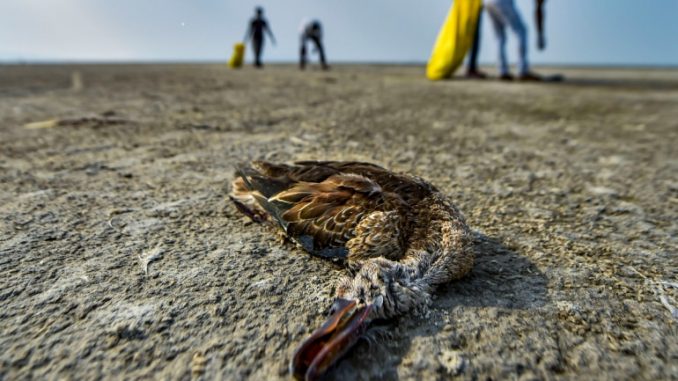
In News
More than 18000 bird carcasses have been found in the Sambar Lake over the past few weeks. Officials have now confirmed that the reason for the bird deaths is due to Avian Botulism.
In-Detail
- Sambar is the largest inland saltwater lake in the country.
- Located in Rajasthan, it is a ‘Wetland of International Importance’ according to the Ramsar Convention on Wetlands, 1990.
- The lake is a major habitat for migratory birds during this period of the year.
- According to estimates, there are over 1.5 lakh birds of as many as 28 species in the lake.
- The mass deaths of birds that have been occurring over the past 10 days puzzled bird watchers and veterinary experts.
- The Indian Veterinary Research Institute (IVRI) in Bareilly, UP, has finally confirmed that the bird deaths are due to Avian Botulism caused by the bacterium Clostridium botulinum.
Experts Divided
- But experts are divided over the cause of deaths.
- Two probable causes that are being proposed are – bacterial infection and salt.
- At the lake, many of the birds have been found paralysed which indicates a bacterial infection.
- The spores of bacterium Clostridium botulinum are found in the soil, lakes, wetlands and live in fish. They remain dormant for several years until the environmental conditions allow them to produce bacterial growth. This has occurred when the water is warm, there is a lack of oxygen, or decaying plants or algae.
- During the growth phase, the bacteria release toxins that accumulate in the fish.
- Birds that eat the fish die due to this toxin.
- Experts argue that this is the reason why flamingoes in the lake are unaffected as they neither eat maggots nor eat fish.
More Salt
- Others believe that excess salt in the late is the reason behind the deaths.
- They say that due to lack of sufficient water over the past few years there is an accumulation of salt in the lake and due to good rainfall this year the salt may have turned toxic.
Conclusion
- This lack of clarity and delay in identifying the cause of deaths is hampering prevention efforts.

Leave a Reply
You must be logged in to post a comment.